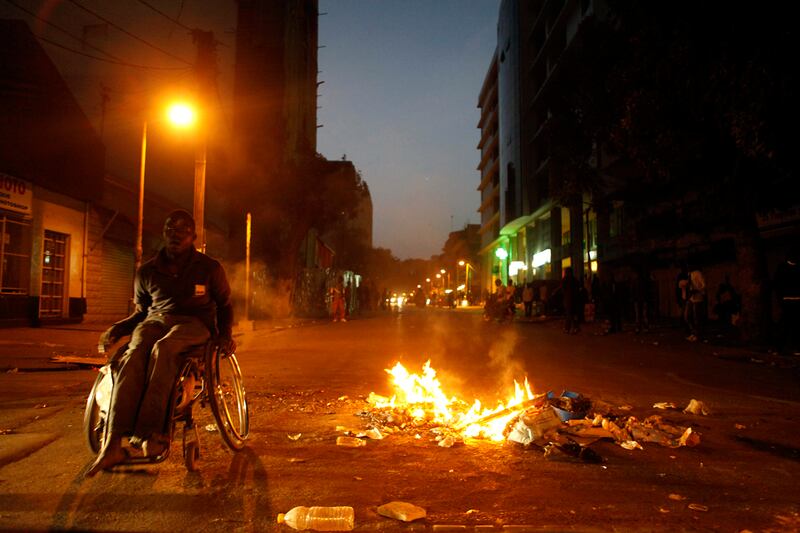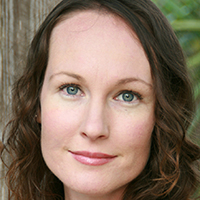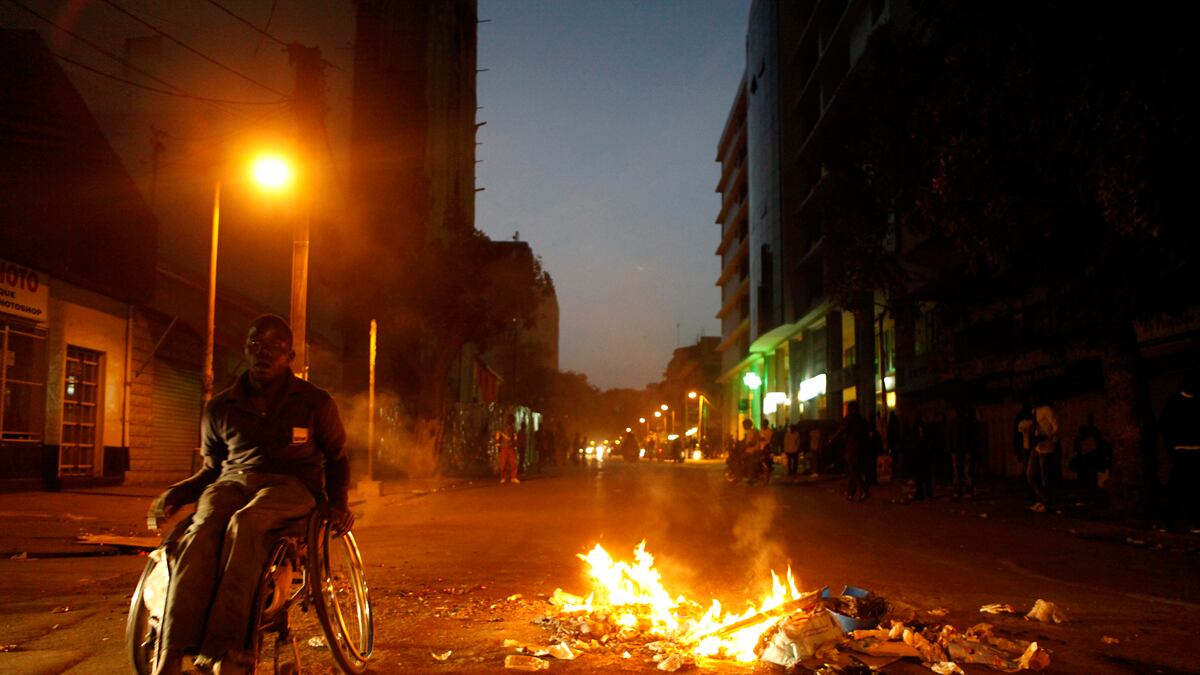Political unrest is engulfing Senegal ahead of the West African nation’s presidential election, scheduled for Sunday, and is threatening the country’s unbroken democratic record.
The violence has been building for months, as opposition groups have called for protests against incumbent Abdoulaye Wade—nicknamed “Le Vieux” or “Old Man”; many say he’s older than his official 85 years—who, some critics claim, is violating the constitution by running for a third term. Wade convened a council last year to amend a two-term limit imposed by the constitution—a limit he happened to lobby for in 2001—and in January the council green-lighted him for a third-term try.
Thirteen candidates have entered the presidential race against Wade in what has devolved into a political circus. Candidates include rap stars and former prime ministers. Even Grammy Award-winning pop icon Youssou N’Dour gave candidacy a shot before being banned from the race.
ADVERTISEMENT
Of course, on a continent where presidents seek to be crowned kings—literally, in the cases of the Gambia, Uganda, and the Central African Republic—and where coup d’états are as common as houseflies, isn’t Wade’s intention to cling to office just business as usual?
Not quite. Senegal has long been a bright star of African democracy, with an unblemished record of peaceful presidential transitions since the country gained independence from France in 1960. To date, Senegal has avoided the fate of neighboring countries like Liberia, Sierra Leone, and most recently the Ivory Coast—nations that have endured brutal and bloody civil wars following disputed elections.
Why has Senegal been so fortunate? Religion, for one. Unlike neighboring countries that are rent by tensions between Christians, Muslims and traditional animists, Senegal is 94 percent Muslim and the population is united under strong Islamic leaders.

“Even the president gets on his knees for the marabouts,” says Mamadou Lamine Sané, 24, who lives in Dakar, the country’s capital.
But many Senegalese wonder if religion is enough to rein in the problems currently facing the country.
Sané, like many of the nation’s young people, came to Dakar hoping to find a job. But even with his law degree, opportunities are scarce. He recently took the national exam for the school of administration, a prestigious training ground for civil service jobs, where more than 10,000 candidates competed for 29 posts.
Senegal has an unemployment rate of 48 percent, and the high rates of joblessness and poverty are part of the reason many are calling for Wade to step down. The embattled president says he wants to stay in office to complete what he calls his “grand projects.” These include building new universities, reopening maritime factories, and constructing highways.
But his grandest project so far has little to do with infrastructure. In 2010 Wade completed work on his African Renaissance Monument, a 160-foot bronze statue overlooking Dakar. The monument—which is taller than the Statue of Liberty—came with a $27 million price tag, sparking controversy in a nation where 54 percent of the population lives below the poverty line.
In recent years, under Wade’s tenure, power cuts have plagued the capitol and crippled the small industries that rely on electricity: the tailors, carpenters, and shopkeepers who depend on a steady current to run their sewing machines, lathes, and refrigerators. Daily power cuts last for hours and whole neighborhoods are silenced as workers wait out the hours without electricity. No power means no work, and no work means no money. Frustration has been rising in the poorer sections of Dakar for months, and in the weeks leading up to the election that frustration has transformed into anger.
Opposition groups like M23 and Y’en a Marre (“Enough is Enough”) have called for protests in the capital during recent weeks, and the protests have turned violent, repeating the pattern seen elsewhere in elections across the African continent.
Experts are asking what Wade has to gain by staying in power.
“Nothing,” says Witney Schneidman, Senior Advisor to the Africa Growth Initiative at the Brookings Institution. “There’s nothing he can hope to achieve in terms of fundamental goals and objectives. He can only lose by staying in power.”
In fact, Wade risks losing his reputation as one of the leaders at the forefront of the democracy movement in Africa. So why does he seem intent upon staying?
“Why do any of these African leaders stay?” Schneidman asks. “A sense of ego. A sense of pride. The belief that they are the only ones to take their nation forward. If Wade wins, we’ll see Senegal moving down the authoritarian path and away from democratic governance. While Senegal has long been an anchor of stability in the region, Wade staying in power makes Senegal that much weaker as a state.”






